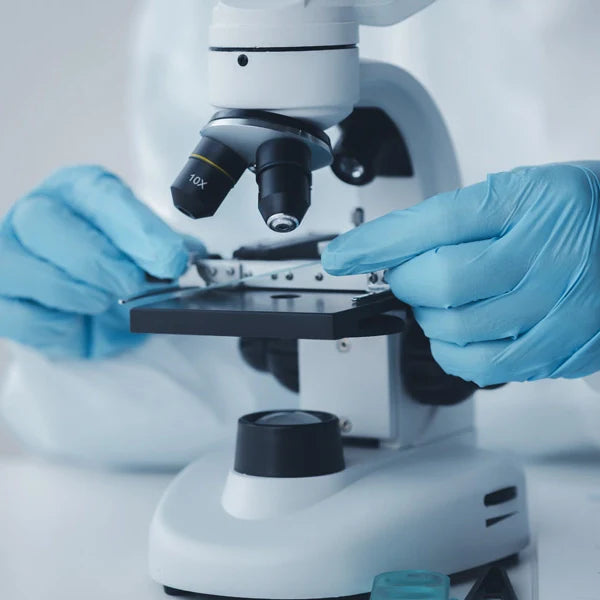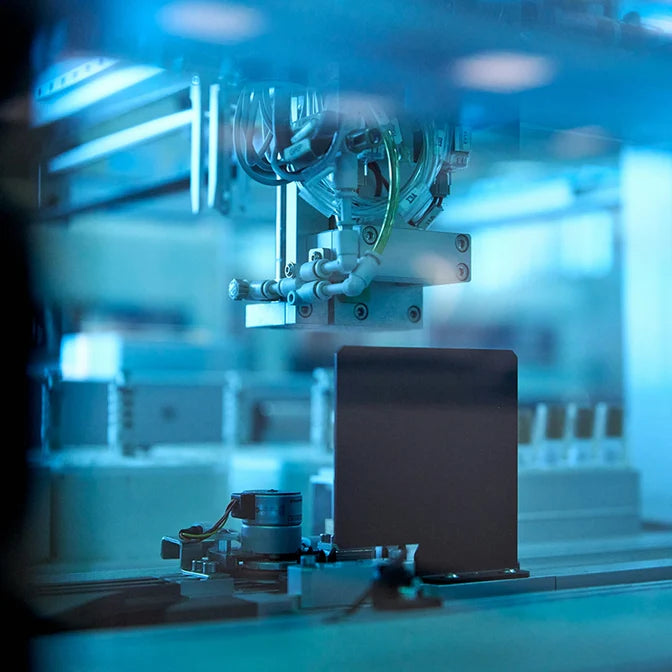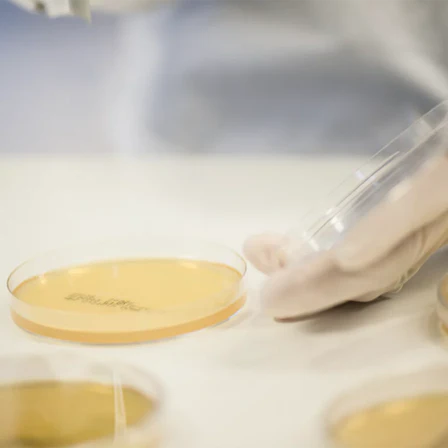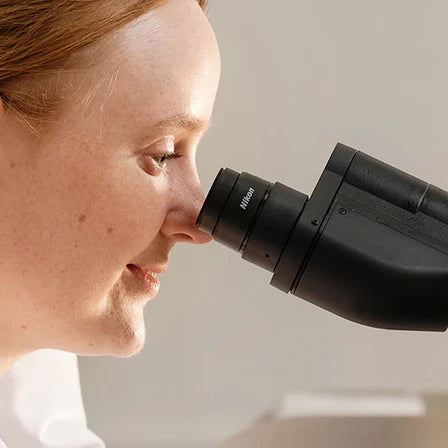Evidence-based gut support
30+ years of microbiome research


Helping you make informed choices
At BioGaia, we believe in transparency and are committed to helping you make informed, healthy choices for you and your family.
This begins with understanding the science behind our world-leading probiotic supplements.
Our formulations are expertly designed with care, thoroughly vetted through various scientific research, meta-analyses and clinical trials.
Learn more about how we conduct our clinical trials.
BioGaia’s world-leading gut health science
We’re proud that over 260 clinical studies involving BioGaia’s strains of L. reuteri have been conducted, encompassing approximately 22,000 participants of all ages.
The findings have been published in more than 250 peer-reviewed scientific journals.
Meta-analyses and clinical studies
In probiotic research, meta-analyses and clinical trials serve distinct but complementary roles in understanding the effectiveness and impact of probiotics. Here’s how they differ:
Probiotic clinical trials
- Definition: Clinical trials are original research studies designed to test the effects of probiotics on specific health outcomes. Participants are divided into groups (e.g., one receiving the probiotic and another receiving a placebo).
- Goal: To establish cause-and-effect relationships by testing hypotheses under controlled conditions.
- Structure: Often randomised and double-blinded to reduce bias and ensure reliable results.
- Scale: Focused on a specific population, dosage, or condition.
- Example: A randomised controlled trial (RCT) testing whether a specific probiotic strain improves symptoms of colic to a higher degree than a placebo product.
Meta-analysis
- Definition: A meta-analysis is a statistical technique that combines data from multiple clinical trials on a similar topic to draw broader conclusions.
- Goal: To synthesise evidence from existing studies to identify trends, increase statistical power, and provide a clearer picture of overall efficacy.
- Structure: Involves selecting and analysing high-quality studies, ensuring consistency in criteria like population, intervention, and outcomes.
- Scale: Provides a larger perspective by pooling data from diverse studies, often spanning different populations and conditions.
- Example: A meta-analysis examining the overall effect of probiotics on gut health across multiple RCTs.
Key differences
| Aspect | Clinical trials | Meta-analysis |
|---|---|---|
| Purpose | Generate original data | Summarise and analyse existing data |
| Sample Size | Limited to the trial participants | Combines data from many studies |
| Outcome | Specific to the trial | Generalises findings across studies |
| Complexity | Focused on a single hypothesis | Evaluates broader patterns/trends |
| Dependence | Independent research | Unbiased conclusion that relies on results from clinical trials |

Why both are important in probiotic research
- Clinical trials provide direct evidence of efficacy and safety for a particular strain or product.
- Meta-analysis help assess the consistency of findings, identify gaps in research, and inform guidelines for broader use.
Together, they ensure a rigorous, evidence-based approach to understanding probiotics and their potential benefits.
BioGaia’s evidence-based probiotics L. reuteri DSM 17938
Clinically-proven effective
- A special probiotic derived from human breast milk (1).
- Suitable for babies: This probiotic has been shown to be suitable for newborns, and can be used from birth up to one year of age (2). L. reuteri DSM 17938 is also shown to be safe for long term use.
- Survives in your gut: It has been proven to survive well in the digestive system, which means it reaches where it’s needed (3).
- Temporarily colonises your gut: Unlike many other probiotics, BioGaia’s L. reuteri DSM 17938 has been shown to stay in the gut temporarily, supporting your digestive health. Studies have confirmed this by looking at biopsies and stool samples from people (4).
1. Dobrogosz WJ, Peacock TJ, Hassan HM. Evolution of the probiotic concept from conception to validation and acceptance in medical science. Adv Appl Microbiol. 2010. 72: 1-41 (book, chapter 1).
2. Abrahamsson TR et al. Probiotics in prevention of IgE-associated eczema: a double-blind, randomized, placebo-controlled trial. J Allergy Clin Immunol. 2007 May;119(5):1174-80. doi: 10.1016/j.jaci.2007.01.007.
3. Savino F et al. Lactobacillus reuteri DSM 17938 in infantile colic: a randomized, double-blind, placebo-controlled trial. Pediatrics. 2010 Sep;126(3):e526-33. doi: 10.1542/peds.2010-0433.
4. Valeur N, Engel P, Carbajal N, Connolly E, Ladefoged K. Colonization and immunomodulation by Lactobacillus reuteri ATCC 55730 in the human gastrointestinal tract. Appl Environ Microbiol. 2004. 70(2);1176-1181. Free access: http://aem.asm.org/content/70/2/1176.long
Babies and children
- Helps ease colic: L. reuteri DSM 17938 has been shown to help reduce crying in colicky babies. The effect is often seen as early as one week, with a noticeable decrease in crying after 21 days. This has been confirmed in multiple clinical studies (5). This has also been concluded in numerous meta-analyses and systematic reviews (6) resulting in recommendations in paediatric guidelines all over the world (7).
- Supports children with occasional diarrhoea: In children with acute gastroenteritis (AGE), this probiotic helps reduce the duration of diarrhoea. Studies show that children given L. reuteri DSM 17938 have less watery diarrhoea and spend less time in the hospital (8).
- Trusted by Experts: The World Gastroenterology Organization (WGO) has given L. reuteri DSM 17938 the highest level of recommendation due to its proven benefits (9).
5. Szajewska H et al. Lactobacillus reuteri DSM 17938 for the management of infantile colic in breastfed infants: a randomized, double-blind, placebo-controlled trial. J Pediatr. 2013 Feb;162(2):257-62. doi: 10.1016/j.jpeds.2012.08.004.
6. Shirazinia R et al. Efficacy of probiotics for managing infantile colic due to their anti-inflammatory properties: a meta-analysis and systematic review. Clin Exp Pediatr. 2021 Dec;64(12):642-651. doi: 10.3345/ cep.2020.01676.
7. Szajewska H et al. Probiotics for the Management of Pediatric Gastro- intestinal Disorders: Position Paper of the ESPGHAN Special Interest Group on Gut Microbiota and Modifications. J Pediatr Gastroenterol Nutr. 2023 Feb 1;76(2):232-247. doi: 10.1097/MPG.0000000000003633. Epub 2022 Oct 11.
8. Dinleyici EC et al. Lactobacillus reuteri DSM 17938 effectively reduces the duration of acute diarrhoea in hospitalised children. Acta Paediatr. 2014 Jul;103(7):e300-5. doi: 10.1111/apa.12617.
9. Guarner et al. World Gastroenterology Organisation Global Guidelines Probiotics and prebiotics. Evidence-based recommendations for probiotics and prebiotics from the World Gastroenterology Organisation (WGO) 2023.
Infection Protection & Preventative Health
- Numerous studies have shown that children getting L. reuteri DSM 17938 preventively, have less absence from daycare due to infections, less diarrhea and fewer days with fever. The children eating L. reuteri, also need less antibiotics (10).
- In combination with L. reuteri ATCC PTA 5289 also shown to shorten duration of upper respiratory tract infections (11).
10. Gutiérrez-Castrellón P et al. Diarrhea in preschool children and Lactobacillus reuteri: a randomized controlled trial. Pediatrics. 2014 Apr;133(4):e904-9. doi: 10.1542/peds.2013-0652.
11. Maya-Barrios A, et al. Limosilactobacillus reuteri ATCC PTA 5289 and DSM 17938 as adjuvants to improve evolution of pharyngitis/tonsillitis in children: randomised controlled trial. Benef Microbes. 2021 Apr 12;12(2):137-145. doi: 10.3920/BM2020.0171.


